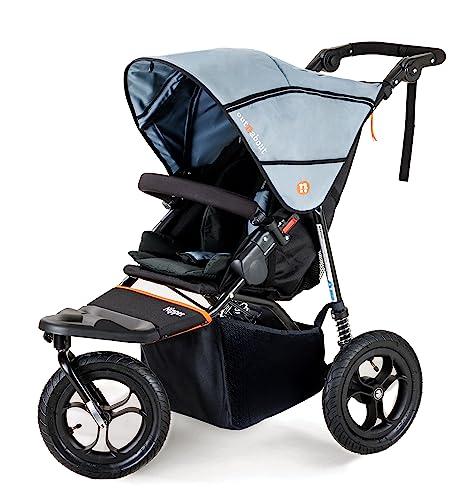10 Pram Or Pushchair Related Projects To Expand Your Creativity
Pram or Pushchair: A Comprehensive Guide for New Parents
Picking the best mode of transportation for kids is among the very first substantial decisions new moms and dads face. With numerous alternatives on the marketplace, the debate in between prams and pushchairs can be bewildering. This article will provide comprehensive insights into the distinctions in between prams and pushchairs, their specs, benefits and drawbacks, and what to consider before purchasing.
Comprehending Prams and Pushchairs
At its core, the option between a pram and a pushchair depends on their style and meant usage.
Meanings:
Pram: A pram, short for “perambulator,” is designed mostly for newborns. It includes a flat, carrycot-style seat that allows the baby to lie down totally flat. Prams are often more elegant and are meant for transferring infants who are not yet sitting up individually.
Pushchair: A pushchair, likewise known as a stroller, is designed for older infants and young children who can stay up. Pushchairs normally have an upright seat and might not recline totally flat, although numerous models now use adjustable reclining options for convenience.
Secret Differences:
Feature
Pram
Pushchair
Age of Use
Newborn to about 6 months
6 months to 4 years or more
Seating Position
Flat, resting
Upright or somewhat reclined
Weight
Usually much heavier
Typically lighter
Portability
Less portable due to weight
More portable and simpler to fold
Use Case
Short strolls, leisurely strolls
Daily usage, errands, longer trips
Advantages and Disadvantages
Pram
Benefits:
- Comfort for Newborns: Provides a flat surface conducive to a newborn's developmental needs.
- Stylish Designs: Many prams come with elegant styles, providing a touch of luxury.
- Storage Space: Sometimes consist of larger storage choices below.
Disadvantages:
- Weight: Generally heavier and bulkier than pushchairs.
- Restricted Usage: Suitable just for newborns and infants who can not sit up.
Pushchair
Advantages:
- Versatility: Suitable for older babies and young children, often accommodating them for a number of years.
- Lightweight and Portable: Easier to fold and transfer, making them perfect for hectic moms and dads.
- Configurable Options: Many pushchairs have adjustable seats and accessories for safety seat and carrycots.
Downsides:
- Comfort for Newborns: Not constantly appropriate for infants in the early months without an appropriate insert.
- Less Luxurious: Often viewed as less elegant compared to prams.
Making the Right Choice
When it concerns choosing between a pram and pushchair, several factors must be considered:
1. Lifestyle:
- If parents regularly make long trips or go for strolls, a pram might be preferential.
- If they require to browse through city streets or take public transportation, a light-weight pushchair might be preferable.
2. Budget:
Pricing can vary extensively. Understanding your financial limits will help concentrate on choices that meet both visual and useful requirements.
3. Versatility:
Some progressive options include travel systems that allow parents to transition from a safety seat to a pushchair with the same base, providing optimum versatility.
4. Storage Space:
A pram might use up more room in an automobile or in your home, while a pushchair's capability to fold down can be a considerable advantage in tighter spaces.
Frequently asked questions
Q1: Can I utilize a pushchair for newborns?
A1: Some pushchairs feature bassinet accessories or totally reclining seats, making them ideal for newborns. Nevertheless, it's necessary to inspect the requirements before use.
Q2: How do I pick the right model?
A2: Consider your way of life, spending plan, and the functions you prioritize, such as weight, mobility, and storage choices.
Q3: Are prams and pushchairs safe for my baby?
A3: Yes, both prams and pushchairs are created with safety features. Look for Pushchairs And Prams with a 5-point harness, tough brakes, and safe and secure frames.
Q4: How long can I utilize a pram for?
A4: A pram is normally suitable till a baby can sit up unassisted, typically around 6 months.
Q5: What are travel systems?
A5: Travel systems are combinations of a safety seat and a pushchair that operate in tandem, enabling easy shifts from cars and truck to pushchair without requiring to remove the baby.
Choosing in between a pram and a pushchair ultimately boils down to the requirements and lifestyle choices of each family. Prams provide convenience and design for infants, while pushchairs provide versatility and ease for older babies and young children. By thoroughly thinking about private scenarios and requirements, parents can make an informed choice that will make sure safe and enjoyable outings with their little ones.
In the end, whether one opts for a stylish pram or a practical pushchair, the main goal remains the very same— guaranteeing convenience and safety for the kid while assisting in convenience for moms and dads.
